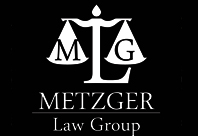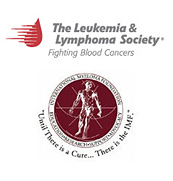Frye is Alive and Well in California
by Raphael Metzger, Esq.
It is reassuring that California courts have not jumped on the "junk science" bandwagon, but still exclude only such expert testimony as is based on unproven scientific techniques, leaving the engine of cross-examination to reveal truth in the courtroom.
For 70 years the Frye rule served as the standard for admissibility of scientific evidence in all jurisdictions. Under Frye, only testimony based on novel scientific techniques that has not gained general acceptance in the scientific community is excluded from evidence. Frye v. U.S. (D.C. Cir. 1923) 293 F. 1013.
However, in 1993 the U.S. Supreme Court rejected the Frye rule and deputized federal district judges "gatekeepers" of scientific testimony. Daubert v. Merrell-Dow Pharmaceuticals, Inc. (1993) 509 U.S. 579. In 1999, the Court expanded this new judicial role to allow the exclusion of all expert testimony -- even technical testimony. Kumho Tire Co. vs. Carmichael (1999) 119 S.Ct. 1167. Fortunately, our California Supreme Court did not succumb to the Chicken Littles decrying "junk science in the courts" and has adhered to the venerable Frye rule. In People v. Leahy (1994) 8 Cal.4th 587, the Court rejected Daubert in favor of the Frye rule which it had adopted in People v. Kelly (1976) 17 Cal.3d 24.
The rationale underlying the rule is that the "misleading aura of certainty which often envelops a new scientific process," Huntingdon v. Crowley (1966) 64 Cal.2d 647, 656, "may in some instances assume a posture of mystic infallibility in the eyes of a jury." Kelly, 17 Cal.3d at 32. This rationale only applies where experts offer testimony based on novel scientific techniques.
"[W]hile courts will go a long way in admitting expert testimony deduced from a well-recognized scientific principle or discovery, the thing from which the deduction is made must be sufficiently established to have gained general acceptance in the particular field in which it belongs." Kelly, 17 Cal.3d at 30.
Thus, our courts have held the rule inapplicable to expert medical testimony, People v. McDonald (1984) 37 Cal.3d 351; clinical opinion testimony, People v. Rowland (1992) 4 Cal.4th 238; medical causation opinion testimony, People v. Stoll (1989) 49 Cal.3d 1136; psychological opinion testimony, People v. Ward (1999) 71 Cal.App.4th 368; and technical opinion testimony, Texaco Producing, Inc. v. County of Kern (1998) 66 Cal.App.4th 1029.
"California distinguishes between expert medical opinion and scientific evidence; the former is not subject to the special admissibility rule of Kelly-Frye. . . . Kelly-Frye applies to cases involving novel devices or processes, not to expert medical testimony." People v. Ward, 71 Cal.App.4th at 373.
"There is good reason why courts draw a distinction between expert medical testimony and evidence derived from a new scientific device or procedure. 'When a witness gives his personal opinion on the stand -- even if he qualifies as an expert -- the jurors may temper their acceptance of his testimony with a healthy skepticism born of their knowledge that all human beings are fallible. But the opposite may be true when the evidence is produced by a machine: Like many laypersons, jurors tend to ascribe an inordinately high degree of certainty to proof derived from an apparently 'scientific' mechanism, instrument, or procedure. Yet the aura of infallibility that often surrounds such evidence may well conceal the fact that it remains experimental and tentative.'" Id.
Recently, the Court in People v. Bui, 2001 Daily Journal D.A.R. 1483, affirmed the admission of a toxicologist's opinion that methamphetamine blood levels correlate with impaired driving skill. The defendant contended the trial court erred in admitting the testimony, arguing it was based on a new scientific technique and was not generally accepted in the scientific community.
The Court of Appeal rejected this argument, because the toxicologist's opinion was based on epidemiological studies. The Court noted that "epidemiological studies and reviews of existing literature are common, valid, and accepted tools of scientific research, which have been in use within the scientific community for the past 200 years." Id. at 1485. The mere fact that the defendant's expert disagreed with the toxicologist's conclusions "does not make [his] methodology a new scientific technique." Id.
Happily, Frye remains alive and well in California.
Raphael Metzger is the principal of the Metzger Law Group, a Professional Law Corporation. His practice is concentrated on occupational cancer, lung disease and organ failure cases. The firm's offices are located in Long Beach, California.




